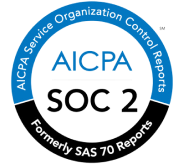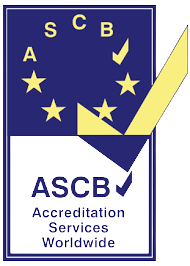Table of Content
Introduction
The gig economy has emerged as a transformative force, especially after the onset of the pandemic and work-from-home culture. As businesses adapt to this paradigm shift, the integration of Human Resource Management Systems (HRMS) becomes paramount. This guide on current gig economy explores its intricacies and how HRMS can drive its success, empowering both employers and freelance professionals.
Want to skip this content?

Guide on Current Gig Economy: A New Frontier of Work
The gig economy has revolutionised traditional employment models. From ride-sharing platforms to freelance marketplaces, opportunities abound for both skilled professionals and those seeking flexible income streams. This dynamic shift has created a demand for innovative approaches, and HRMS presents a vital solution.
Know from the explanations and subheadings below how HRMS software like uKnowva drives the gig economy to its ultimate success in India.
- The Power of HRMS in the Gig Economy
HRMS, an integrated software solution, offers a range of tools designed to streamline HR processes. Its integration into the gig economy yields numerous benefits, such as efficient onboarding, accurate compensation tracking, performance assessment, and seamless communication between employers and freelancers. This technology not only optimises operations but also enhances the overall gig worker experience.
- Navigating Compliance and Regulation
One challenge within the gig economy is ensuring compliance with labour laws and regulations. HRMS can aid employers in managing contracts, hours worked, and compensation to meet legal standards. Moreover, the system's automated reporting features facilitate transparency and adherence to tax requirements, reducing legal risks for both parties.
- Enhancing Onboarding and Engagement
First impressions matter, and HRMS facilitates a smooth onboarding process for freelancers. From digital contracts to orientation materials, our HRM system expedites the integration of gig workers. Additionally, it fosters engagement through continuous feedback mechanisms, recognising outstanding performance and addressing concerns promptly.
- Tailoring Compensation and Benefits
Compensation structures in the gig economy can be intricate, with variable pay rates based on tasks completed. HRMS software in India enables employers to customise compensation packages, ensuring fair remuneration aligned with industry standards. Furthermore, the system allows for the provision of benefits tailored to individual freelancers, enhancing their commitment and loyalty.
- Harnessing Data for Performance Insights
Data-driven decision-making is a hallmark of modern business, and HRMS empowers employers to collect and analyse performance metrics. By tracking key performance indicators (KPIs), businesses or even smaller teams can identify top-performing freelancers, allocate tasks efficiently, and offer targeted growth opportunities.
- Fostering Collaboration and Communication
Effective communication is pivotal in remote work arrangements. HRMS offers a centralised communication channel like the social intranet, ensuring that gig workers remain connected with team members and supervisors. Real-time messaging, project updates, post publishing features, reward and recognition, and live announcement or news feed foster a sense of belonging and mutual understanding.
- Streamlining Administrative Tasks
The administrative burden can impede productivity for both employers and freelancers. HRMS automates administrative tasks, such as timesheet tracking, invoice generation, and expense reporting. This streamlining saves time and resources, allowing parties to focus on value-added activities.
- Addressing Freelancer Concerns
Freelancers often grapple with uncertainty regarding payment timelines and project expectations. HRMS provides a platform for transparent communication where freelancers can access project details, timelines, and payment information. This reduces anxiety and fosters trust in the employer-freelancer relationship.
- Ensuring Equal Opportunities and Fair Treatment
Diversity and inclusion are fundamental principles, even in the gig economy. HRMS assists in creating a level playing field by tracking hiring practices, performance evaluations, and opportunities provided. This proactive approach helps eradicate bias and promotes equal treatment for all freelancers.
- Adapting to Skill Set Evolution
The gig economy encourages skill diversification as freelancers seek opportunities in various domains. HRMS supports skill tracking and development, enabling freelancers to showcase their evolving expertise. Employers can identify untapped potential and assign tasks accordingly.
- Building a Strong Freelancer Community
Freelancers often lack the camaraderie found in traditional workplaces. HRMS incorporates features like virtual meetups, discussion forums, and skill-sharing platforms, fostering a sense of community among freelancers. This connectivity boosts morale and facilitates knowledge exchange.
Conclusion
The current gig economy offers boundless opportunities for both employers and freelancers, and HRMS serves as a strategic tool to maximise these benefits. By automating processes, enhancing communication, and promoting transparency, HRMS transforms the gig economy into a harmonious ecosystem where productivity and collaboration thrive.
If you're ready to harness the potential of the gig economy with HRMS, embrace innovation and empower your workforce for the future.
FAQs
How does HRMS benefit gig economy employers?
HRMS streamlines hiring, onboarding, compensation, and communication processes for gig economy employers, enhancing efficiency and fostering better relationships with freelancers.
Can HRMS ensure compliance with labour laws?
Yes, HRMS automates labour law compliance by tracking hours worked, contracts, and compensation, reducing legal risks for both employers and freelancers.
How does HRMS improve freelancer engagement?
HRMS facilitates engagement through smooth onboarding, continuous feedback, and tailored compensation and benefits, creating a positive work experience.
What data insights can employers gather from HRMS?
Employers can track performance metrics, identify top freelancers, allocate tasks effectively, and make data-driven decisions to optimise their gig workforce.
How does HRMS foster inclusivity in the gig economy?
HRMS ensures equal opportunities by tracking hiring practices and performance evaluations, promoting diversity and fair treatment among freelancers.












